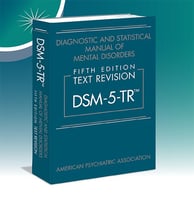APA Reiterates Stringent Rules on Accepting Pharma Support
 |
In an official APA statement DSM-5 Task Force Chair David Kupfer, M.D., emphasized that as a precondition to appointment to work on DSM-5, all task force and work group members were required to disclose any industry interests or potentially conflicting relationships and must have pledged to abide by rules limiting their involvement with pharmaceutical firms or other industry groups.
The APA statement came in response to a December 26 article in the Washington Post examining pharmaceutical industry influence on decisions regarding DSM-5, especially a decision to remove the so-called “grief exclusion” from criteria for a diagnosis of major depression. The Post article alleged that the decision was influenced by ties to the pharmaceutical industry by some DSM-5 contributors and that the industry will reap a a large financial windfall as a result of the change in diagnostic criteria.
In his statement, Kupfer strongly disagreed and emphasized the following crucial steps APA has taken to safeguard DSM-5 decision making from industry influence:
- All DSM-5 Task Force and work group members agreed that starting in 2007 and continuing for the duration of their work on DSM-5, their total annual income derived from industry sources (excluding unrestricted research grants) would not exceed $10,000 in any calendar year.
- Participants agreed not to hold stock or shares valued at more than $50,000 in any pharmaceutical or device company.
- All work group and task force members agreed to serve in a volunteer capacity without compensation for their efforts on DSM-5.
- Participants' disclosures have been updated annually and have been actively monitored during the duration of work on DSM-5.
Similar steps have been taken to ensure that APA's practice guidelines are free of industry influence.
With regard to the removal of the grief exclusion from DSM-5, Kupfer said the decision was guided by research demonstrating that major depression and normal grief are significantly different from each other. And he noted that the new criteria emphasize the need for clinicians to differentiate between normal grieving associated with a significant loss and a diagnosis of a mental disorder. “[I]t is important to realize that DSM-5 includes material to make sure that it is understood that sadness, grief, and bereavement are not things that have a time limitation to them or go away within 2 or 3 months,” Kupfer said in the statement. "These feelings and emotions can persist a year and perhaps beyond. We need to more clearly understand the differences between sadness and grief and those conditions that require intervention."
DSM-5 will be published in May. The complete statement by APA can be accessed here.
DSM-5 will be published in May. The complete statement by APA can be accessed here.





